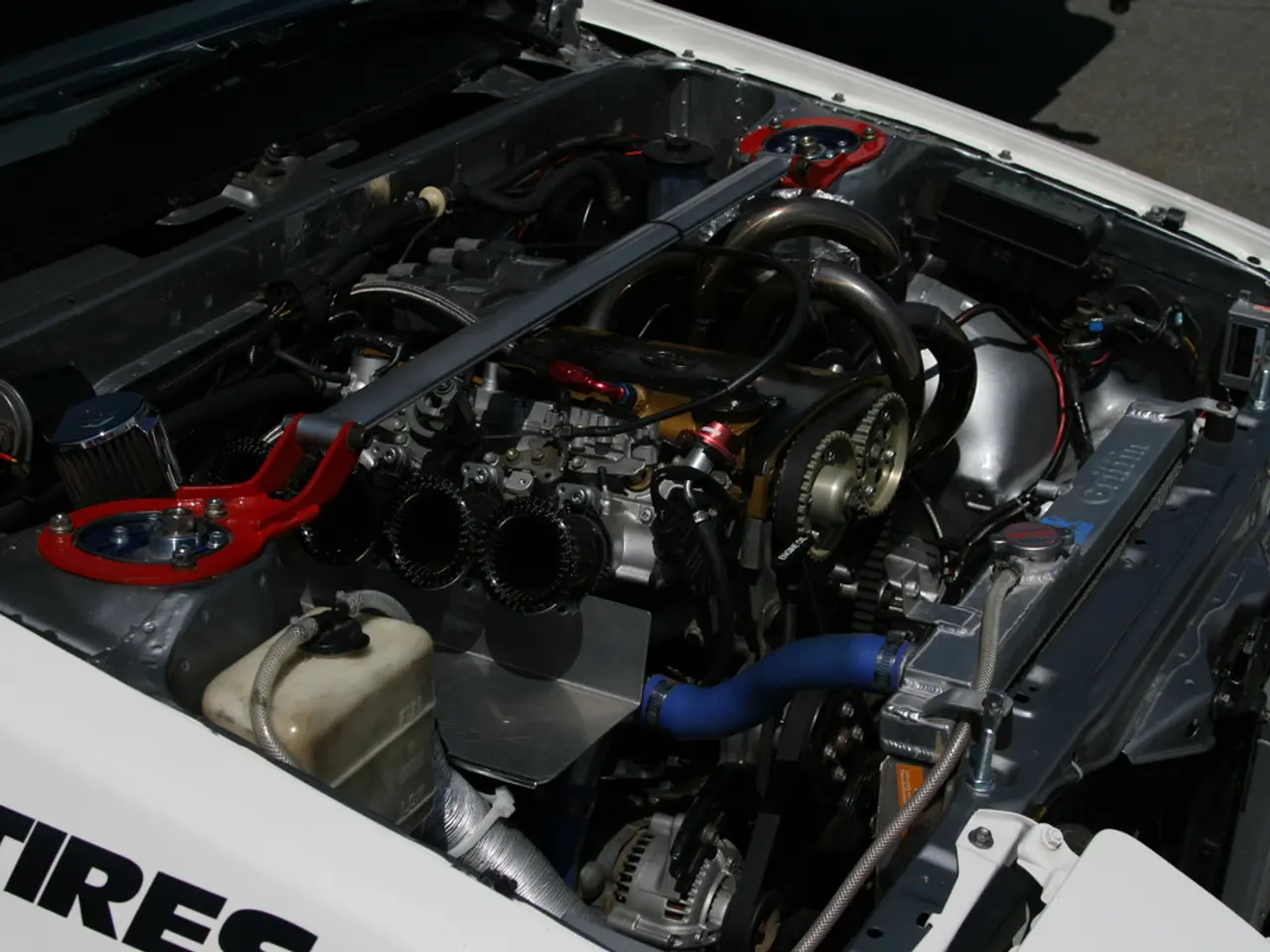Hydrogen replaces coal in Moorburg's rebuilding project
In the heart of Hamburg, Germany, a transformative project is underway at the Moorburg site, once a bustling coal power plant. The Moorburg Green Hydrogen Hub (MGHH) is set to become a major player in the production of green hydrogen, a clean energy source that could revolutionize industries across the globe.
The project, a collaboration between Luxcara, Hamburger Energiewerke, Siemens Energy, and the municipal company, is on track for a significant milestone. Construction of the hydrogen production facility is expected to commence in the middle of this year, with the electrolyser itself slated to become operational by 2025. The associated hydrogen infrastructure development will continue towards 2027, aiming to establish a pipeline network spanning 40 kilometers to supply customers.
The MGHH electrolyser, with a capacity of 100 megawatts, will utilise renewable-powered electrolysis to produce approximately 10,000 tons of hydrogen annually, all exclusively from electricity sourced from renewable sources. However, the availability and prices of green hydrogen are associated with significant uncertainties.
The transition from coal to green hydrogen production presents several challenges. Ensuring pipeline integrity and safety for hydrogen transport is paramount, as hydrogen can cause embrittlement in steel pipes. To mitigate these risks, extensive cleaning, ultrasonic and magnetic resonance inspections, and cathodic protection systems are being applied.
Managing the costs and logistical complexity of repurposing old gas infrastructure for hydrogen use is another hurdle. Balancing investment savings with necessary upgrades and safety assurances is crucial. Moreover, coordinating among multiple stakeholders, including municipal utilities, government authorities, and private companies, is essential to build an integrated hydrogen ecosystem capable of supporting industrial demand.
The MGHH project is a testament to the substantial financial commitment required to establish a climate-neutral hydrogen economy. It receives millions of euros in government funding, reflecting the importance of this transition.
Meanwhile, other hydrogen-related initiatives are underway in Hamburg. The municipal company has stated that construction of a 100-megawatt electrolyzer in Moorburg is underway. Additionally, since the beginning of 2025, the Hochbahn has been testing a hydrogen bus, with the test results currently being evaluated.
However, not all initiatives have been successful. ArcelorMittal Europe, for instance, has abandoned plans to convert flat steel mills to a climate-neutral production process due to unsustainable and unviable business conditions.
In the transportation sector, hydrogen has had little significance in Hamburg, with only 11 hydrogen vehicles in operation with public utilities as of the end of 2024. The future of four more hydrogen buses of this type remains unclear.
Despite these challenges, the MGHH project is a promising step towards a greener future for Hamburg and a model for other cities worldwide. The project aims to overcome technical challenges related to pipeline adaptation and infrastructure cost through innovative reuse strategies and strong stakeholder collaboration supported by public funding.
- The Moorburg Green Hydrogen Hub (MGHH) is a transformative project in Hamburg, Germany, that focuses on renewable-energy and environmental-science, aiming to revolutionize various industries.
- The MGHH project, a collaboration between multiple partners, is poised to commence construction of a 100-megawatt hydrogen production facility in the middle of this year, with the electrolyser becoming operational by 2025.
- The MGHH aims to produce approximately 10,000 tons of green hydrogen annually through renewable-powered electrolysis, but faces challenges in managing the costs and logistical complexity of repurposing old gas infrastructure for hydrogen use.
- The future of hydrogen in Hamburg's transportation sector remains uncertain, with only 11 hydrogen vehicles in operation as of the end of 2024, and the status of four more hydrogen buses is yet to be determined.




